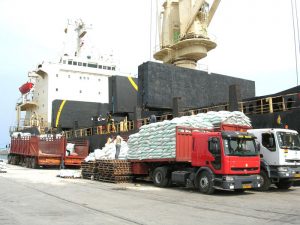A Senior Research Fellow with the Institute of Fiscal Studies, Dr. Said Boakye believes successive governments’ poor fiscal policies have partly contributed to Ghana’s current economic challenges.
Speaking on the Point of View on Citi TV, Dr. Boakye posited that governments’ excessive borrowing to support policies such as the free SHS programme has resulted in the free fall of the cedi against major trading currencies.
“Governments’ fiscal management has been very poor for the past decade, and it is what has contributed to the situation. Poor fiscal management in the sense that the government resorted to borrowing and borrowing and borrowing and spending. You cannot spend what you do not have but the government thought it could spend what it did not have,” he said.
The cedi has depreciated against the dollar, trading at almost 10 cedis per dollar.
The sharp fall from 6 cedis at the beginning of the year, to 10 cedis now, has had a major impact on importers, in particular, with a far-reaching effect on the purchasing power of consumers.
Dr. Said advised the government to “come clean and devise concrete solutions” to address the cedi depreciation.
Ghana’s economic challenges have resulted in worsening public debt, rising inflation, skyrocketing fuel prices, and cedi depreciation, among others.
Latest figures released by the Bank of Ghana put Ghana’s total public debt stock, as of June 2022, at USS 54.4 billion or GH¢393.4 billion.
A few months ago, Fitch downgraded Ghana’s Long-Term Foreign-Currency Issuer Default Rating (IDR) to ‘B-‘ from ‘B’ and the outlook was negative.
Moody’s Investors Service (Moody’s) also downgraded Ghana’s long-term issuer and senior unsecured debt ratings to Caa1 from B3 and changed the outlook to stable from negative, while S&P downgraded Ghana’s foreign and local credit ratings from B-B’ to CCC+C with a negative economic outlook.






